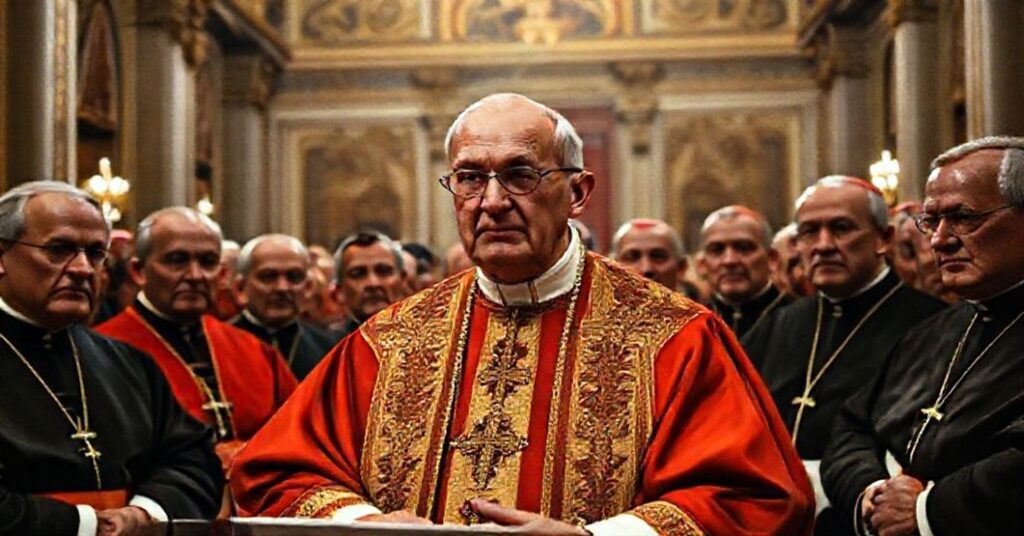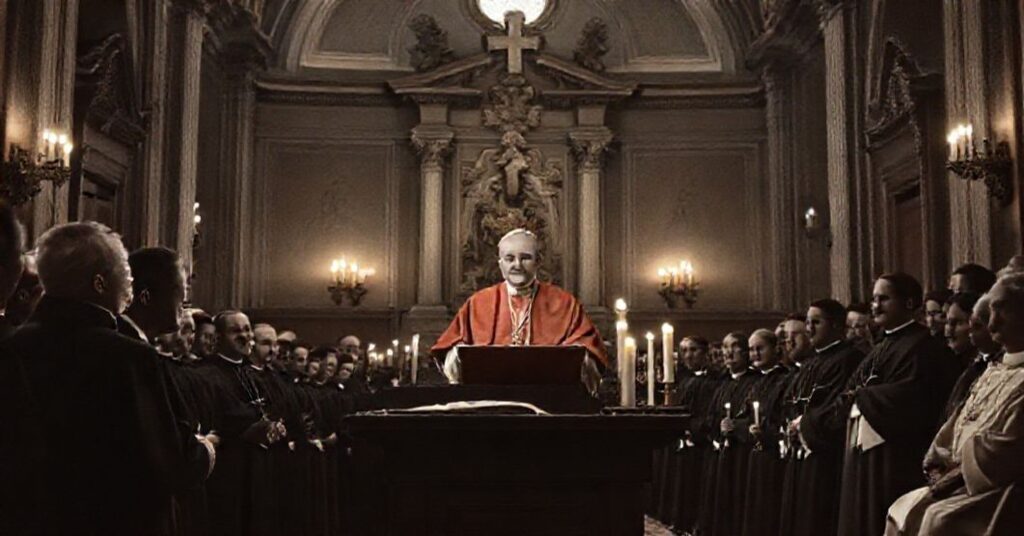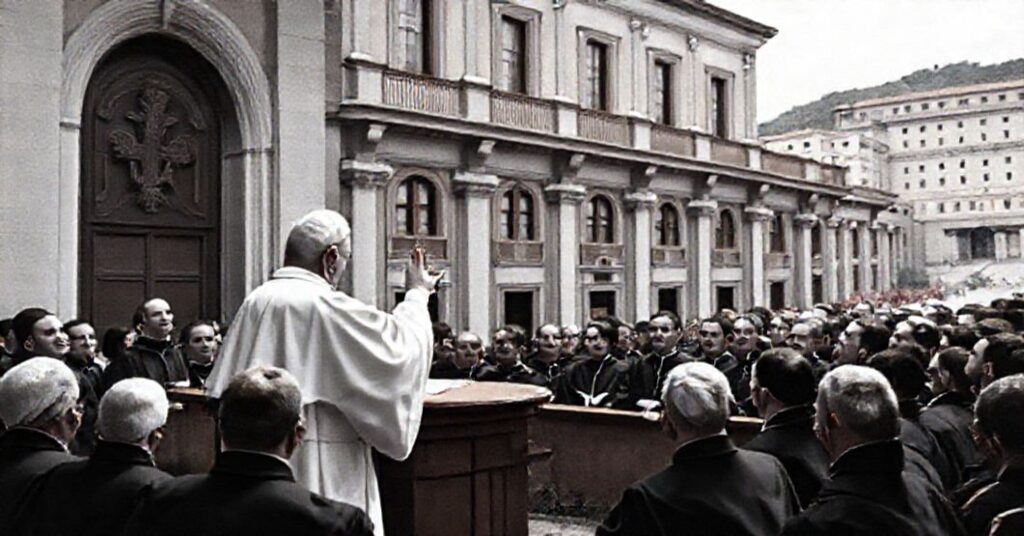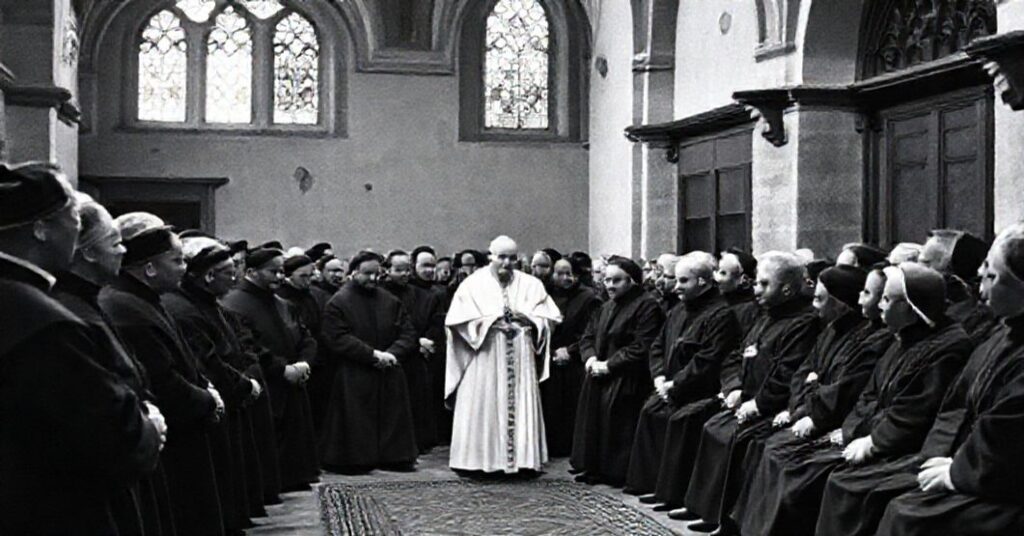Allocutio Ioannis XXIII (1959.12.14): Blueprint of the Conciliar Revolution
Vatican portal presents the 14 December 1959 secret consistory allocution of John XXIII, spoken before the assembled cardinals, in which he rehearses his first year on the usurped throne, exalts mass pilgrimages and sentimental devotions, laments worldly misfortunes, hints at social-economic redistribution, complains of restrictions on religious liberty (especially in China), and, above all, solemnly announces the Roman diocesan synod and the future so‑called “ecumenical council,” while creating eight new members of the conciliar college, notably Augustin Bea, one of the chief future architects of the ecumenical and interreligious revolution.




